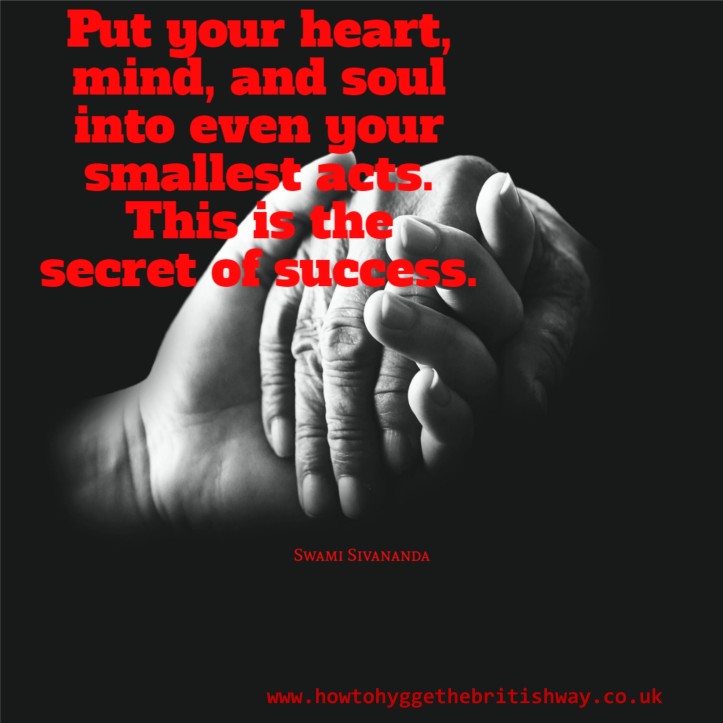It’s springtime, and the shops are full of Easter eggs, chocolate bunnies and hot cross buns. It’ll be Easter Sunday on 21st April 2019, and houses all over the land will be full of children chasing after eggs, parents cooking lamb or turkey, and a lot of talk about the new season in clothes, TV and weather.

Easter is a natural time for new beginnings. The farmyards are filling with baby animals, the crops are peeping through, buds bursting into leaf as you watch and everywhere is new, clean, fresh.
For many people, Easter itself is the start of the new season, but traditionally for most Christians Easter is like a gateway between two seasons. You see, before Christians start celebrating Easter, new life and new birth, they often feel the need to go through a period of preparation, of purification and cleansing. This season is called Lent, a period when Christians will choose to do practices that focus on their spiritual health rather than the very-present physical world. Time spent clearing the mind and body ready for the next stage is a practice often seen in religion or spiritual paths. It’s like pressing the reset button on a computer, a way of clearing worries, concerns, habits and replacing them with more meaningful, mindful actions.
A traditional Lent practice has three strands: fasting, charitable giving and prayer.

The fasting element is still present in the secular world today: we all probably know someone who is giving up chocolate or alcohol for Lent, or remember friends doing something similar in our childhood. Dryanuary is a secular example of giving something up for our physical and mental well-being.
Fasting is found in many religions across the world as a way of focusing our mind and hearts on spiritual rather than mundane matters. It clears the body to free the mind. You only have to think of the daytime fasts of Muslims during Ramadan, when even water is forbidden, or Buddhist retreats when fasting is an important part of reaching a higher level of consciousness. Over the years, Christianity has loosened a lot of the ‘laws’ regarding fasting and eating, and the law of the land has never been completely tied to Christian beliefs so that fasting was never imposed legally. I’m happy with that. It means that, as a Christian, when you do decide to fast it is an act you choose to do, not an action imposed on you. That makes it even more personal, and lets you decide how, when and why you are fasting.
In my youth, Roman Catholics stuck to the Fish on Friday rule like glue. The idea was that Jesus had died on a Friday, and that eating fish, rather than meat, was a way of honouring his sacrifice. My parents were in a mixed marriage, so we didn’t stick strictly to this every week, but we did avoid meat on Ash Wednesday (the day after Shrove or Pancake Tuesday) and on Good Friday, the day we commemorate the death of Jesus.
Charitable giving is self-explanatory. It’s using the gifts we have to benefit others. Again, most people have an innate charitable instinct, and donate to their chosen concerns. At Primary school we ran whole-school campaigns, raising money for the homeless and starving children in the UK and abroad. I remember bringing in every 2p in the house to fill a large glass bottle, which was donated to the archdiocese Good Shepherd fund. Every school’s donation was counted and published in a kind of league table of generosity. It must have been lovely for those schools in affluent areas, but I can imagine the pain of schools where every 2p was hard earned (this was the early 70s) and the money collected could have been just as well-spent on their own pupils. They still gave, they just gave what they could afford and suffered more for the privilege.
Nowadays it’s easy to give regularly, through direct debits, round-up-change schemes on Amazon or Domino’s Pizza, or just shopping and donating at the number of charity shops available. Giving thoughtfully, though… that’s the real gift. Looking at what you can afford to give, deciding who to give it to (I prefer local to international, or small scale to industrial. You can still find many people locally who are collecting for small international concerns. Our church has just had a party of 16 visit Brazil, complete with £20,000 donations raised from the Church and local community groups, to work in and learn about a mother and babies home there. The money gets spent (this time on a roof for the outside play area so that it can be used in rain and oppressive heat) and we get to see the children benefitting via social media posts and a slide show when the gang get back. Ask around locally to find links to projects that appeal to you.
And prayer… prayer gets a bad rap if you’re not a holy person. True, the idea of talking to a God that you may/may not believe in can seem strange if you’re not a believer, but for many people it’s a real source of comfort and support. For many unreligious people, prayer still happens, just that they’re talking to themselves, or to the Universe, or to a relative alive or dead. That internal voice still happens, the concerns are still the same (Oh, I hope the roads are clear this morning: please let me get there on time) but the expectation of answer may be absent. In Christian prayer, we are supposed to expect an answer, even if that answer is no.
Okay, that’s enough about how Lent works for a Christian. If you want to know more, find a Christian friend and ask them, or read one of the articles below:
https://www.thoughtco.com/what-is-lent-700774
http://aboutfirst.com/lent-explained
Why have I gone on about Lent, especially if you’re not a believer, and won’t want to have anything to do with any overtly religious celebration?

Well, the practices that Lent promotes are those, in adapted form, that most people find benefit their physical and mental well-being most. Lent, being a time-limited period, is an ideal opportunity to press the reset button for yourself, mentally and physically, and to clear some of the spiritual clutter from your life. I’m not asking for you to suddenly start carrying rosary beads, or to dress in black and start acting like Deborah Kerr in The Black Narcissus. I’m asking for you to consider the 46 days before Easter as a good time to spring clean yourself as well as your home. Take the three strands of a good Lent practice and adapt them to suit your lifestyle.
Fasting:
- Eat well. Do that diet you’ve been promising yourself, just until Easter Saturday, and then you can pig out on chocolate eggs and hot cross buns guilt-free, although it would be better to make the 46 days a kick-start for a new, healthier lifestyle completely and only pig out until Easter Tuesday (April 23rd this year) before picking up your new, healthier lifestyle for the rest of the year.
- Cut out the time-wasters you know are bad for you. Have a digital detox, where you limit your screen time, or cut it out completely. Having a ‘no phones Friday Night’, with the whole family playing games or watching a movie, not automatically switching the TV on first thing in the morning or as you enter the house, deleting the social media apps that suck your time away without adding joy. These can all boost your mental wellbeing, and give you more time to do something else.
- Cut back on activities, either personally or as a family. Take a month (just over) off, and send apologies for that committee meeting where nothing ever happens, the social book club that ends up in gossip or the five-a-side lads’ meet up, where any positive from the exercise disappears in the bar afterwards.
- Replace activities with ones that are good for you. Choose a non-fiction book in a subject you’ve always wanted to know about but never had the time to find out. Choose any book ahead of TV. Add exercise to your health kick, and walk as much as possible (perhaps play the five-a-side game, and just drop the social afterwards)
Charitable Giving
- Which is most precious to you: money, or time? Because that’s where the real power of your charitable giving will lie.
- Save up the money you’re not spending on eating out, coffees grabbed on the way to the office or back from school or the treat food that you’re giving up for Lent and donate it to a local cause.
- Have a good declutter around the house and donate anything useful or in good condition to your local charity shop. You could also try selling it on Ebay or at a car boot sale and donate the proceeds instead (a gift of time and money).
- Find a way to spend time helping out a group you feel strongly about. That could be physically, as in volunteering for a local children’s group or nursing home (but be aware you may need to plan this in advance and be properly checked before they let you help out) or you could be an armchair warrior for them, writing letters and emails to campaign for change, or using the internet/phone to be a friend to someone housebound or immobile.
- Don’t forget to sign up to Gift Aid if you’re a British tax payer, and let the recipient claim extra money for every pound you donate. I don’t know if there’s a similar scheme in America?
Peaceful Thinking
- Prayer sounds too holy? Rename it meditation or peaceful thinking. The ultimate purpose is the same: to quieten your mind and soul, and to let the peace (of God, the universe, or your own Spirit, depending on belief) enter in.
- Find a time and space every day to do it. Loads of people swear by early morning, and that 10 minutes a day spent at rest sets them up well for whatever life throws at them. My best time is just before bed, when I can disappear after a busy day, get ready for bed and still my mind before having a good sleep.
- 10 minutes is an eternity? Not really, not once you get used to it, but if the thought of silence for that long scares you, use a guided meditation app like Buddhify or Headspace.
- I love doing something while I let my brain empty. A repetitive craft such as knitting or crochet (nothing complicated, no patterns required: blankets work well for crochet) or anything arts and craftish that you are good at will do. The aim is to reach a point of flow, a point when time stands still, and the activity takes over.
- Conversely, doing something so complicated that you literally are not free to think can also work as a meditation. If your brain is so filled with the model-making, sewing, carving or other activity that thought is impossible, it gives you a space away from your life to be purely yourself.
Whether you approach it from a religious viewpoint or not, using the time to improve your mental health and physical wellbeing is a sensible thing to do. Do you practise Lent as a religious observance, or would you consider using the time to observe sensible eating, living and wellbeing practices?
I have a massive favour to ask….
I don’t monetise my blog. I don’t run adverts, take sponsorship for writing posts or use affiliate links. I want everything I do on this blog and in my hygge life outside to be truthful. If I promote a book it’s because I’ve read it and like it, if I point out an item it’s because it’s impressed me on its own merits and not because the publicist has talked me into it. It does mean I don’t run giveaways and I’m not chasing followers, but the drawback is that I need to find a way to support myself.
That’s why I write books. My thoughts are that if I ask you to buy a book not only does it support me, and let me keep writing as an independent writer, but you get something back for your bucks. I’ve written several books, some on hygge, some on Christmas. If you like what you read here, or in the Hygge Nook, and you’d like to support a struggling writer, would you please consider buying a book? Ebooks give you the best value, since for 2 or 3 pounds you get the whole content of the book without paying the extra for paper production, but I’d be a pretty poor writer if I didn’t appreciate the beauty of a real book in the hand. If you buy just one book, it all adds up in the end to support me, and I’d be so grateful.
I’m working on my new book, Enjoying a Self Care Winter: Hibernation for Humans which should be out in the next few weeks, but until then you’ll have to live with my back catalogue.
My first three books are hygge related, 50 Ways to Hygge the British Way was my first book, and is available in Paperback and Kindle version. It’s a simple look at ways to feel more hyggely in life and at home even though we’re not Danish and don’t have it in our DNA.
How to Hygge Your Summer, in Paperback and Kindle form, has lots of good ideas for the summer months. I strongly believe that hygge is so much more than throws and warm drinks.
Happier is my fourth book. It’s about how I boost my own happiness levels. It’s full of hints, tips and ideas for you to use and adapt to suit your own situation. It is available in ebook and paperback version from Amazon.co.uk and Amazon.com.
I have three Christmas books,
Have Yourself a Happy Hygge Christmas was released in September 2017 and is available again in paperback and ebook version. It looks at keeping the Christmas season warm and cosy, with ideas for activities and routines to keep Christmas happy.
A (Hygge) Christmas Carol is my look at Dickens’ immortal classic and the many lessons we still learn from it today. It contains the full text of the book as well as hyggely thoughts on the story.
Enjoying a Self Care Christmas is only available in ebook version. It’s about keeping Christmas simple enough and healthy enough to keep you sane in the process.
If you buy any of the books through the links on this page, I get a couple of extra pence per copy, in Amazon vouchers which go towards buying more books to review for the blog. I’d really love it if you’d support me monetarily, but I quite understand that cash is tight for many people, and I just love having your support via reading and commenting as well.
And if you’d like to receive a monthly dose of cosy, happy, hygge love, then you can sign up to the monthly newsletter I write by clicking on the link below and filling in the form.